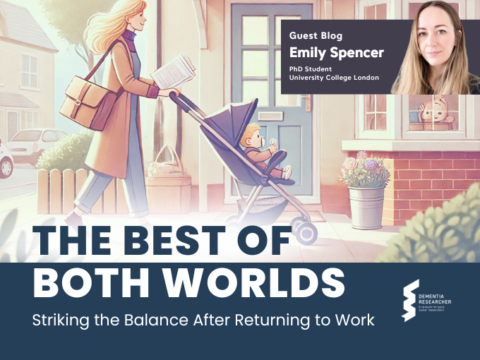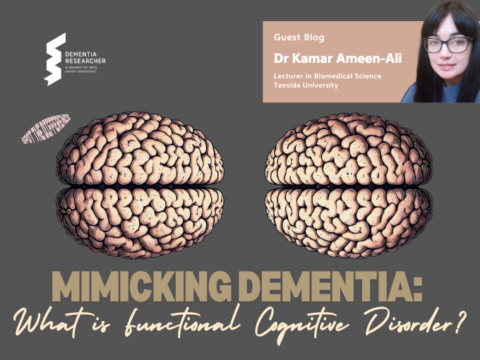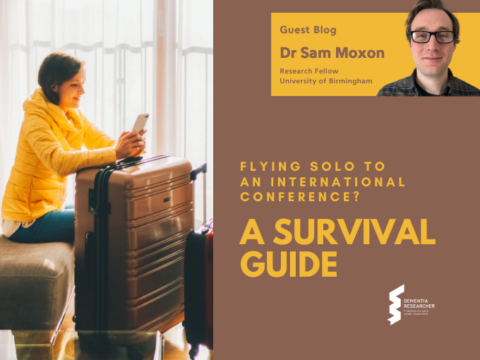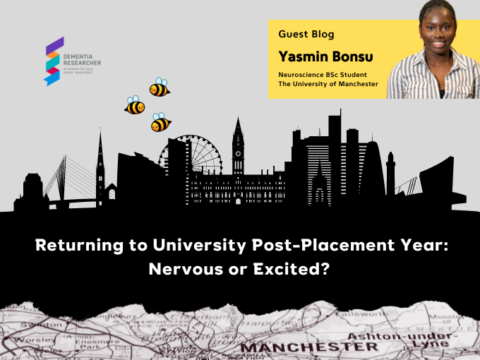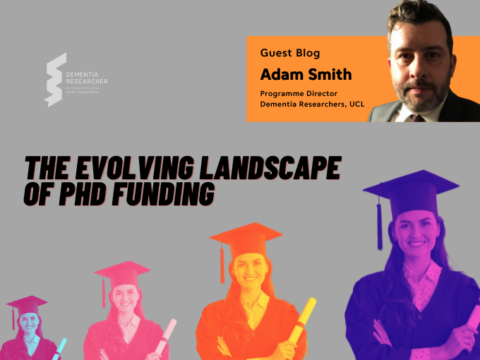Don’t panic. The title was not a confession. I’m not quitting. At least not yet. But I have been thinking about the motivation to quit a lot lately and I think it’s important I pass on my knowledge to you.
First some credit, much of the info in this has been lifted from the amazing A Slight Change of Plans podcast interview with the incredible poker player and psychologist Annie Duke. Annie and the host, Maya Shankar, discuss the psychology behind quitting and the importance of thinking about quitting well, quitting early and deciding to quit.
From a researcher’s point of view this is going to have two important bearings on what we do. First, it’s going to play a role in how we decide the path of our science, both the day-to-day experiments and the big picture stuff. And second, it’s going to play a role in how we decide the path of our careers.
Let’s talk about the experimental part first and I’m going to ease you in with a personal example.
I work on extracellular vesicles. They’re small and, as it turns out, really complicated and messy. Part of the problem the field has is the technology to isolate and study them hasn’t caught up with our ideas and what we want to do. What I want to do is get them out of the plasma of animals that have had a stroke to find out what they do to the vasculature in the brain. Which sounds great on the face of it. But the problem I’ve been having is that getting a ‘clean’ population of extracellular vesicles out of plasma is nearly impossible. What I do at the moment is size exclusion, which basically runs them through a sieve, where the big stuff comes out first and the small stuff comes out later. So my early fractions have the extracellular vesicles in and my later fractions have proteins. At least that’s the theory. In practice I’ve spent months tweaking techniques, trying to figure out what the hot mess is that appears to be in all of my fractions.
So now I’ve quit. I’ve not quit the science, I still want to figure out what they do. But I’ve quit trying to get the clean population I’ve been wanting. I’ve decided that my early fractions of plasma are likely to be uncontaminated by proteins so they’re still going to be cleaner than whole plasma. And I’ve also decided that actually I would really like to know what the extracellular vesicles and the proteins do when you apply them to vascular cells separately, but also when you apply them together.
Now you’ve got my example I’ll explain a bit about the psychology of why the decision to quit that line of work was hard and why you should think about it too.
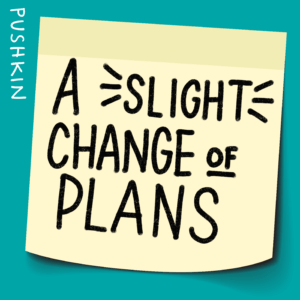
Named by Apple as the Best Show of the Year 2021, host Dr. Maya Shankar blends compassionate storytelling with the science of human behavior to help us understand who we are, and who we become, in the face of a big change.
Humans don’t deal well with the realisation that they made a bad decision. But actually, a decision is simply that. A decision. It’s not an outcome. And an outcome can be bad or good, depending on your perspective. In science, we make decisions based on evidence. Taking the example above, I decided that running my plasma through size exclusion would give me a pure population. At the time I wrote the application and started the work that was reasonable. Now the field has moved on and we’ve established that actually even if you do that with plasma, there’s so much else going on that you’re still unlikely to get anything near as clean as I might like it to be. So my original decision wasn’t bad, it was simply made based on the evidence I had at the time. Now I have new evidence I can decide to quit and approach the problem from a different direction.
So, when you’re thinking about your experiments remember to think about quitting them too. If you’re not getting the result you want, maybe that is the result and you should quit and inform the world. Positivity bias is a major issue in science and if your experiment hasn’t worked, we need to know so we don’t make the same mistakes. But if you’re not getting the result you want because of some extrinsic factor you should quit and approach the problem from another direction. Quitting in the lab is important.
But is quitting in the real world also important?
One comment Duke made in the podcast was that we don’t see the people who quit. We only see the people who push through the chasm, people who’ve potentially compromised their mental health, their family life and their finances to ‘beat the odds’. And that, in terms of a life narrative, is much more inspiring. We discussed in our podcast on post-doc life that the bias of academia is that we’re surrounded by people who, in theory, made it. We’re constantly exposed to professors and heads of department and group leaders. They must have got there somehow, right?
But we’re not exposed to the people who left. The people who now run successful companies. The people who spun something out or patented something. The people who have amazing careers in science journalism or administrative support. Because of this, we don’t realise that the decision to quit could benefit us in the same way. So here’s some of the psychology behind that aspect of quitting.
The first issue we apparently have is called escalation of commitment. As you progress up the academic career ladder you put the equivalent of blood, sweat and tears into progressing. You potentially compromise your mental health by getting stressed about grants, you compromise your family life by working weekends. And the more you do this the more it becomes part of who you are. Part of your identity.
Who are you? Duke asks. I, am an associate professor at Oxford.
But in thinking like that, in tying our own identities to our careers, we’re not seeing the benefits that we could accrue by quitting. Our existential baggage drives us to persevere and to develop a single-minded drive to pursue something which may be unattainable.
And part of that is because of the second issue, which is status quo bias. This is what it says on the tin. We have a bias for what we are already experiencing. Better the devil you know, and all that. But this bias results in something called regret asymmetry. And the test for this in any situation is easy. Let’s take job unhappiness as an example. If you’re unhappy in your job, how likely is it you’ll still be unhappy in 3 months’ time? Close to 100%, right? So if you quit, and changed jobs, you might be unhappy only 50% of the time, right? Clearly this is better, but most people will still choose not to quit. They prefer guaranteed unhappiness rather than the regret of potential unhappiness. Which is insane.
One reason for this might simply be linguistic. Out of prompted curiosity I typed ‘quitter’ into this document and hit synonym. The list went as follows: loser, defeatist, coward, pessimist, fatalist. But one of the examples Duke gives of quitters is people who climb Everest. There are turnaround times which you set to ensure you don’t end up falling off the mountain at night, and lots of people turn around. They don’t end up reaching the summit but they also don’t die. They quit to live. My experiments have reached a turnaround time. I’ve not achieved what I wanted but I might achieve something else instead. None of these make me or the mountain climbers losers or cowards.
So, what can we do about all of this? How can we learn to quit better?
The first thing to do is set reasonable goals and, Duke says, learn to use the word ‘unless’ more. My goal will be to do this unless something else happens. My goal will be to become a full professor unless I fail to get a grant in the next two years (clearly a crazy example but a sensible one nevertheless). My goal will be to finish one paper. Be reasonable and be realistic.
The second thing to do is get feedback. By seeking out the opinion of someone who is unbiased you are more likely to see your situation objectively.
Are your experiments failing? Go to someone with more experience and ask what they think. Maybe you’re missing a really important control group. Maybe you’re approaching the problem wrong and there’s a technique you didn’t know about that would be easier. Maybe it’s a terrible experiment to start with. By seeking feedback you’ll be able to decide when and how to quit a particular line of research. This is what good mentorship is about so actively find good mentors.
Are you struggling with your career in academia? Go and find someone who has already left. Are they happier? Did they regret their decision to quit? Were they in the same position as you? What do they think your options are and what do they think the outcomes would be for you if you choose to stay, or if you choose to quit? Find someone, as Duke says, who loves you but who doesn’t care about your feelings.
Some of Duke’s final comments are on long-term goals. She says everyone’s long term goal should be to be happy. So think about how much the failed experiments, the toxic work environment, the bad boss, the long hours, the poor pay, contribute to your happiness. And if they don’t, why haven’t you quit already?
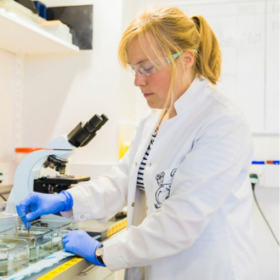
Dr Yvonne Couch
Author
Dr Yvonne Couch is an Alzheimer’s Research UK Fellow at the University of Oxford. Yvonne studies the role of extracellular vesicles and their role in changing the function of the vasculature after stroke, aiming to discover why the prevalence of dementia after stroke is three times higher than the average. It is her passion for problem solving and love of science that drives her, in advancing our knowledge of disease. Yvonne has joined the team of staff bloggers at Dementia Researcher, and will be writing about her work and life as she takes a new road into independent research.

 Print This Post
Print This Post